Special Tools
J 45722 Fuel Sender Lock Ring Wrench
Removal Procedure
- Remove the fuel tank in order to gain access to the primary fuel tank module (1). Refer to Fuel Tank Replacement.
- Disconnect the fuel feed hose quick connect fitting (4) from the primary fuel tank module. Refer to Plastic Collar Quick Connect Fitting Service.
- Remove the fuel feed hose (2) from the retainer on the fuel tank and position the hose aside.
- Release the interlock and disconnect the electrical connector (3) from the primary fuel tank module.
- Remove the wire harness (1) from the retainer on the fuel tank and position the harness aside.
- Use the J 45722 wrench (2) and a long breaker-bar (1) in order to unlock the fuel tank module lock ring (3), by turning counterclockwise.
- Remove the cam lock ring.
- Partially remove the primary fuel tank module (1) in order to gain access to the fuel transfer hose quick connect fitting (3). Use care not to damage the float arm (2).
- Disconnect the fuel transfer hose quick connect fitting (3).
- Remove the primary fuel tank module from the fuel tank.
- Discard the fuel tank module seal (4).
- Place the lock ring on a flat surface. Measure the clearance between the lock ring and the flat surface using a feeler gage at 7 points.
- If warpage is less than 0.41 mm (0.016 in), the lock ring does not require replacement.
- If warpage is greater than 0.41 mm (0.016 in), the lock ring must be replaced.
Warning: Refer to Gasoline/Gasoline Vapors Warning in the Preface section.
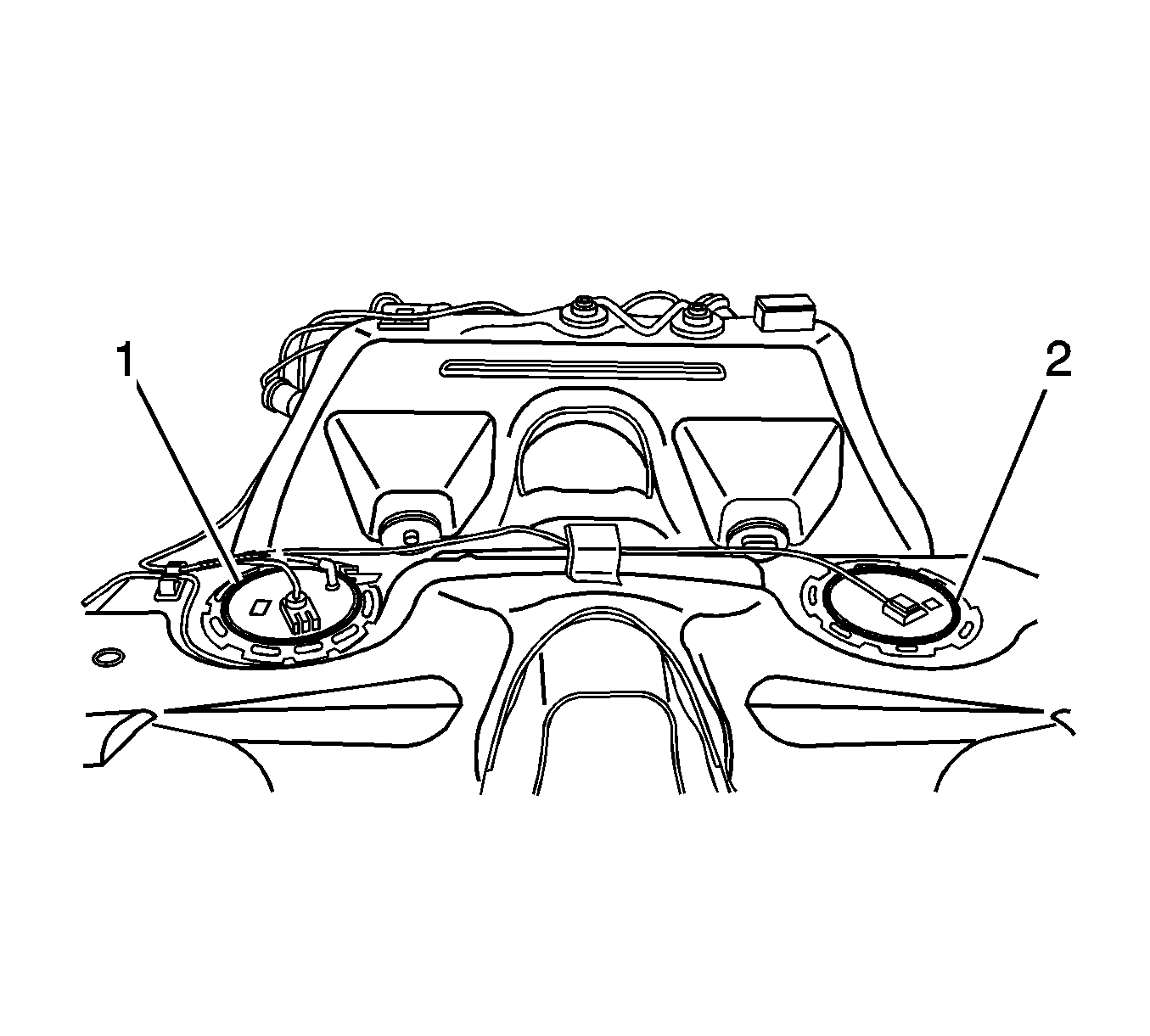
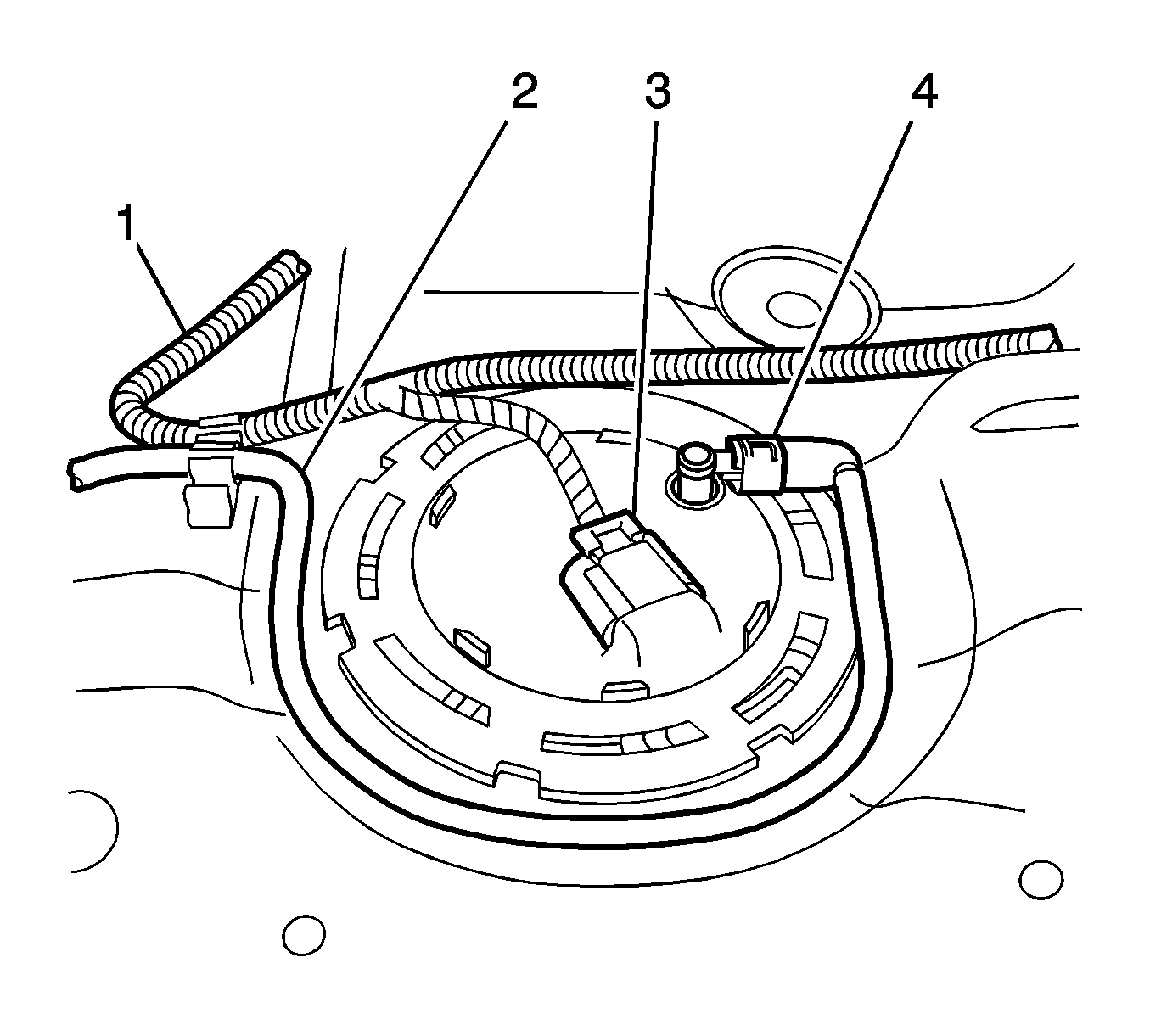
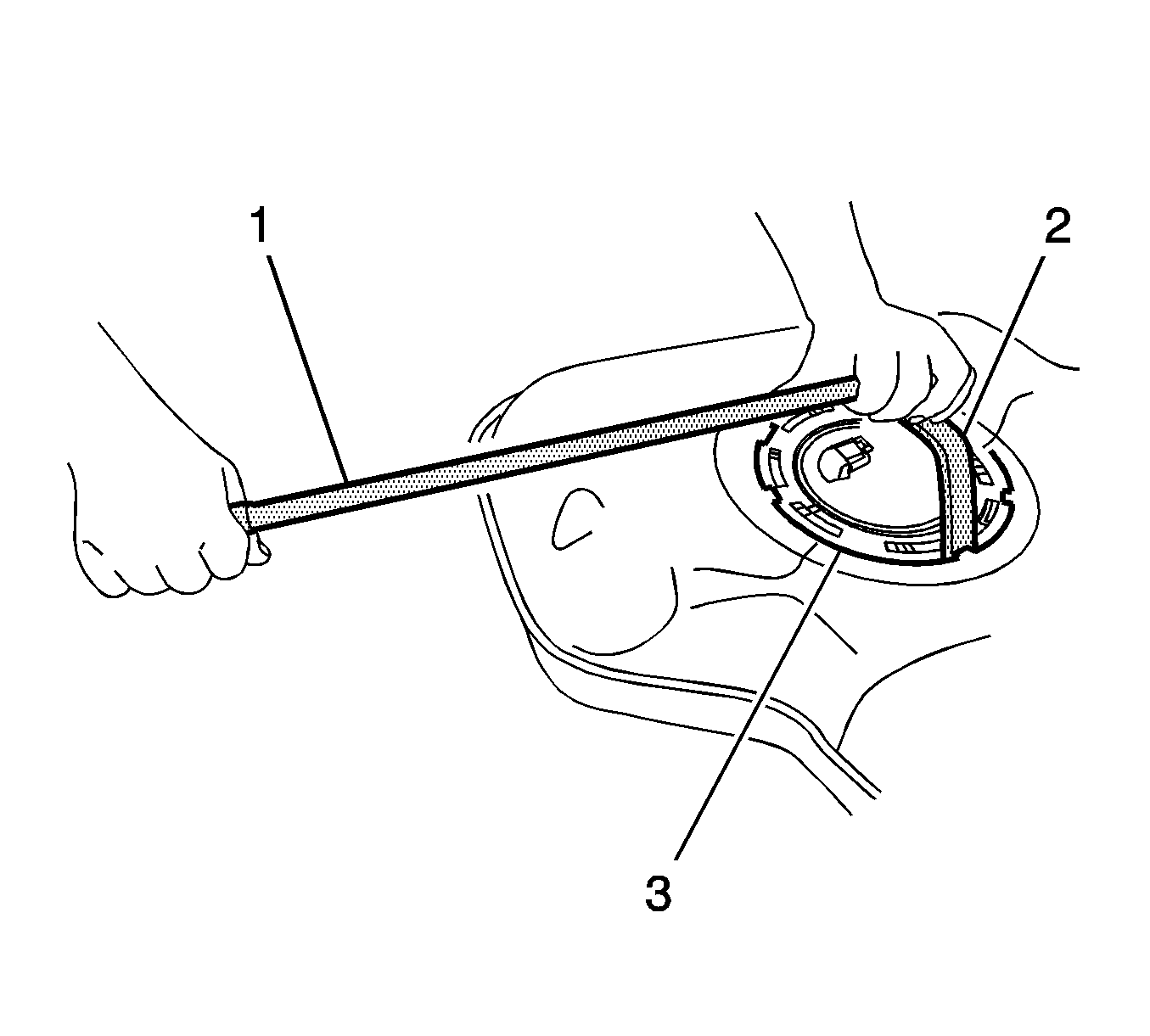
Caution: Avoid damaging the lock ring. Use only J-45722 to prevent damage to the lock ring.
Caution: Do Not handle the fuel sender assembly by the fuel pipes. The amount of leverage generated by handling the fuel pipes could damage the joints.
Note:
• DO NOT use impact tools. Significant force will be required to release the lock ring. The use of a hammer and screwdriver is not recommended. Secure the fuel tank in order to prevent fuel tank rotation. • Do not allow the tool to come in contact with the fuel pipe while unlocking the cam lock ring.
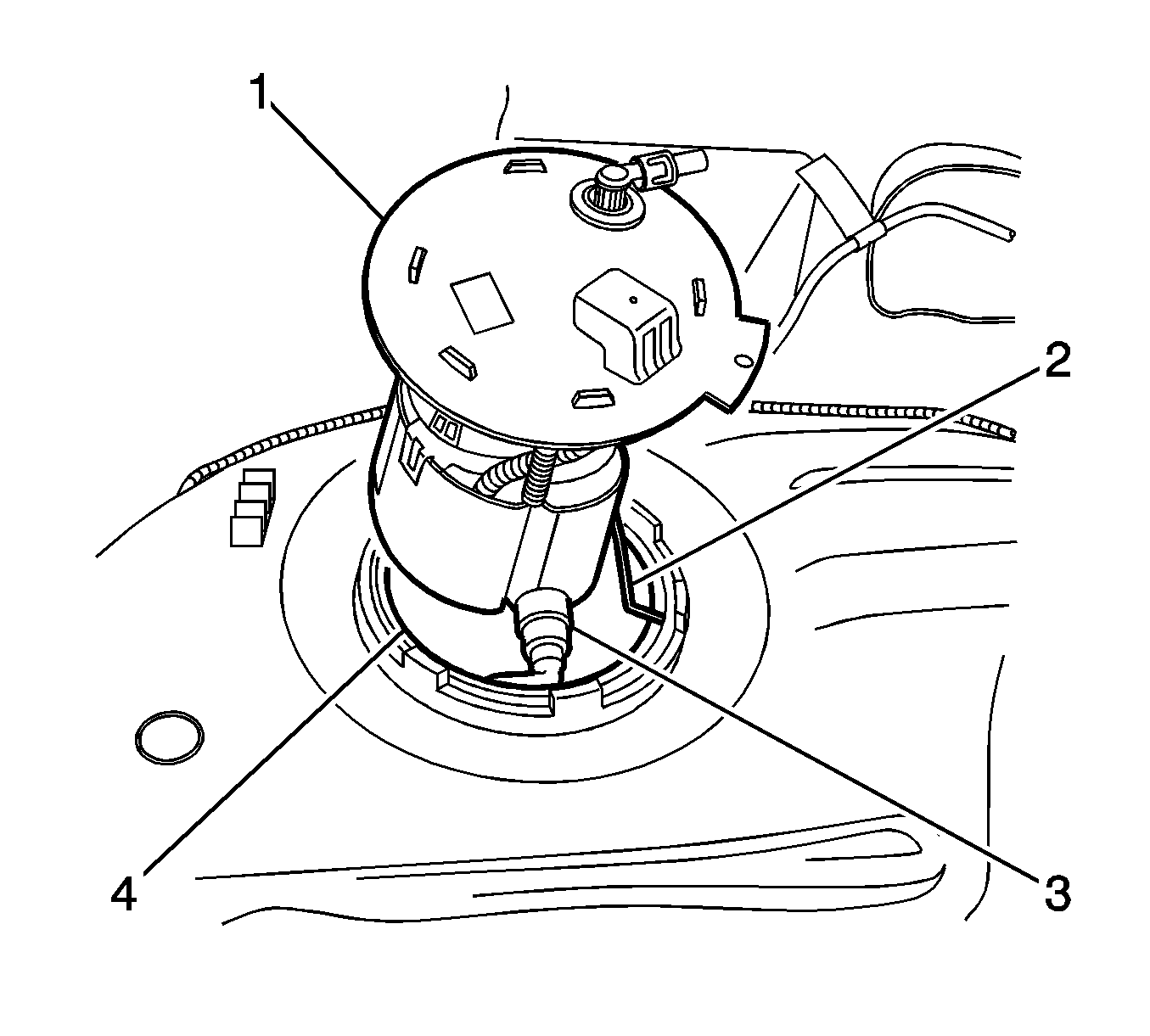
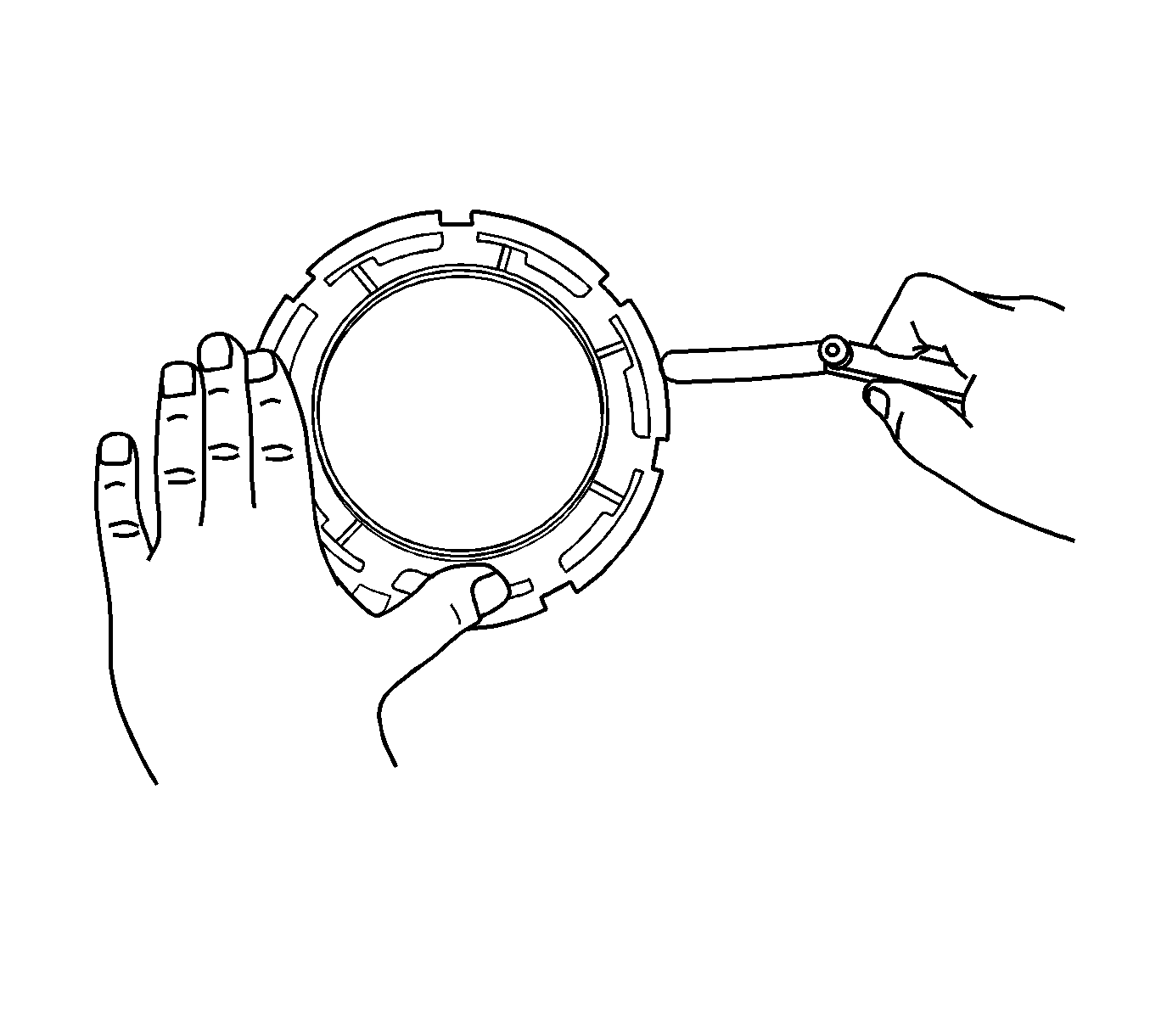
Note:
• Some lock rings were manufactured with "DO NOT REUSE" stamped into them. These lock rings may be reused if the lock rings are not damaged or warped. • Inspect the lock ring for damage due to improper removal or installation procedures. If damage is found, install a NEW lock ring. • Check the lock ring for flatness.
Installation Procedure
- Install a NEW fuel tank module seal (4).
- Grasp the fuel transfer hose from inside the fuel tank.
- Partially install the primary fuel tank module (1) to the fuel tank.
- Connect the fuel transfer hose quick connect fitting (3) to the port on the fuel tank module. Refer to Plastic Collar Quick Connect Fitting Service
- Press the primary fuel tank module downward, aligning the module to the encapsulated ring.
- Position the cam lock ring (3) to the fuel tank.
- Use the J 45722 wrench (2) and a long breaker-bar (1) to install the fuel tank module lock ring (3), by turning clockwise, until fully seated.
- Connect the electrical connector (3) to the primary fuel tank module and engage the connector interlock.
- Install the wire harness (1) to the retainer on the fuel tank.
- Connect the fuel feed hose quick connect fitting (4) to the primary fuel tank module. Refer to Plastic Collar Quick Connect Fitting Service.
- Install the fuel feed hose (2) to the retainer on the fuel tank.
- Install the fuel tank. Refer to Fuel Tank Replacement.

Note: Always replace the fuel tank module seal when installing the fuel tank module assembly. Replace the lock ring if necessary. DO NOT apply any type of lubrication in the seal groove.

Note: Ensure the lock ring is installed with the correct side facing upward. A correctly installed lock ring will only turn in a clockwise direction.
Note: DO NOT use impact tools. Significant force will be required to install the lock ring. The use of a hammer and screwdriver is not recommended. Secure the fuel tank in order to prevent fuel tank rotation.

